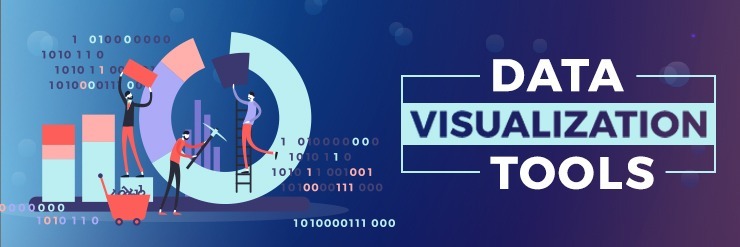The recent privacy update from WhatsApp has electrified users about their privacy in an unexpected manner. Bearing the users’ response to this controversial update, WhatsApp decided to postpone the deadline to accept the updated terms and policies.
The increasing concerns of – a learned or more aware group of – users made most WhatsApp users curious about the mobile app’s privacy and the data it might access and share with third parties.
This recently updated privacy policy from WhatsApp might go into effect on May, 15th 2021. The threat of privacy breaches has caused the company a considerable share of controversy. It brought the famous messaging app in an unfavorable situation where a few alternative apps to WhatsApp rolled in claiming privacy assurance.
In the past, Facebook has also faced similar controversies mostly centered around privacy breaches for financial gains. As a result, these companies, belonging to a similar parent group, were asked by the officials about the collection and use of personal information.
Let’s take a brief look at what app privacy is and how mobile app development companies or owners are bound to follow the rule.
What is an App Privacy Policy?
A mobile app privacy policy refers to a legal statement referring to how a mobile app company collects, stores, uses, and shares the personal information gathered from app users. Hence, app development companies are legally instructed to follow the state and the app publishing company’s privacy guidelines.
In this regard, personal information refers to any data acquired from app users that can be used to identify an individual, including their names, contacts, emails, device IDs, media & storage, and locations. Mobile app developers and development companies are required to abide by federal laws for app privacy. These policies are made to protect users’ privacy while protecting the company itself from facing legal challenges.
Hence, if a mobile app gathers, stores, uses, shares, or releases users’ information, it is legally bound to show up the app’s privacy policy and how they handle users’ information.
What Do Your Apps Know?
Users are now quite aware that they share a fair share of information with the apps installed on their devices. It’s not just Facebook or WhatsApp that sponge up a questionable amount of data with several interactions.
Most iOS and Android apps can access users’ phone storage, microphone, cameras, location, calendar, contacts, and social media account information. Different apps require access to other areas depending on its feature and functionalities. So, acquiring permission for some of these accesses is necessary. For instance, a food delivery app needs access to your address to deliver the food. A photo editing app requires access to a phone’s gallery to function. A ride-hailing app needs to access your location to complete its job. In case of denying access requests to these areas, the app’s basic functionality will break.
However, mobile apps can ask users for several different permissions, and users’ access accepted for wrong or unnecessary permissions can take essential data to the verge of insecurity. It gives the app access to identify track activities and information. Even worse, people do not care much about these app permissions and allow the app to track their movements without understanding the aftermath of data breaches and security vulnerabilities.
What Do Your Apps Know About Your Location?
Once you grant location access, app makers can latch on to the navigation and floor information along with the area and town. It infers that mobile apps with access to your location know the floor and altitudes of the house or apartment. Moreover, giving access to the location information can track the frequency of your visits to a particular location.
Now, we know that our apps can pull in a considerably dangerous amount of personal information from our daily lives. Do you know what information can WhatsApp access?
What does WhatsApp Know?
WhatsApp asks permission to access the camera, including media and files, location, microphone, call logs, SMS, and telephone. To utilize the app’s essential features, users need to grant access to at least the first four areas.
Why did the WhatsApp Privacy Concern Grow Bigger?
A few months ago, WhatsApp changed its terms to include users’ data requirement to share certain information with its parent company, Facebook. The app, however, insisted this update caters to only improving integration with Facebook other products. This users’ concern grew and blew up to a disgrace to the company’s reputation. This leads users to become worried about plenty of matters to the point where many decided to substitute this messaging app with other WhatsApp alternatives, including Telegram and Signal.
What if Users Deny the New Terms From WhatsApp?
If users deny accepting the terms, they will begin to lose access to the app. First, users will continue to see notifications and receive calls on WhatsApp, but in case of not accepting the terms in the long run, they won’t be able to use the app until agreeing. As a result of such events, users feel a lack of Security and Control over the information they share with mobile app companies.
Lack of Security and Control Among Users
Americans Feel Lack of Control Over Personal Information
The majority of the public thinks their data is relatively lesser secure these days. The doubt that the access to their personal information by mobile app development companies can pose more risks than benefits. Unfortunately, they assume that it is impossible to go through daily routine life without being tracked.
According to research by the PEW research center, most Americans do not feel control of their data. A total of 81% of U.S adults believe they have very little or no control over the information that these companies collect.
Privacy Threats vs. Benefits of Sharing Personal Information
81% of Americans say that the potential risks of sharing personal information collected by mobile app companies outweigh the benefits, and 66% think about government data collection. Whereas 72% of users say, they do not receive any but minimal service personally from their information collection. This infers the fact that most of the data collection from apps does not benefit users but their financial gains through ads and data selling.
Since these apps are bound to share why they need access to certain information from users’ phones and how they use it, users barely question the key. However, this information cannot ultimately justify the correct use of user personal information. There is a fundamental need for strict policy-making and law enforcement for mobile app companies to provide user information security.








